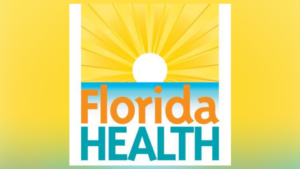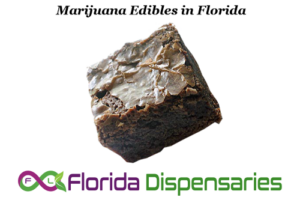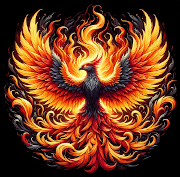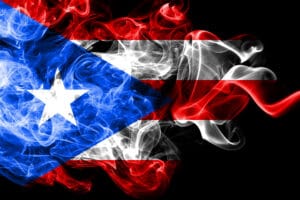
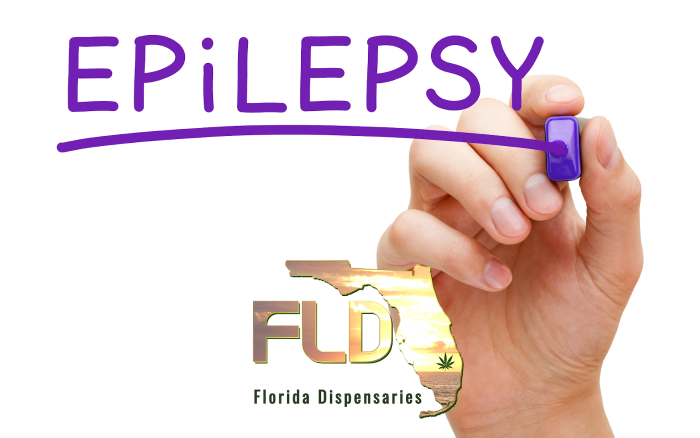
Florida Medical Marijuana - Treating Epilepsy and Other Seizure Disorders
Can medical marijuana be used to treat epilepsy and seizure disorders in Florida? Is marijuana actually effective at reducing the frequency and severity of seizures? We’ll answer these questions in this post, and explain how to get a Florida medical marijuana card.
Residents who suffer from epilepsy or another type of seizure disorder are eligible for a Florida medical marijuana card. But does medical marijuana really help treat these conditions? And just how effective is marijuana at reducing the severity and frequency of seizures? The truth is, clinical studies provide evidence that a majority of patients suffering from seizures actually attain a considerable measure of relief.
With Florida having joined the 30-plus U.S. states and many countries that have approved the use of medical marijuana, cannabis is now widely recognized across the world for its ability to significantly curtail seizures.
What is a seizure disorder? And how, precisely, does medical cannabis help to reduce the magnitude and frequency of seizures? Here’s what we know so far.
A Bit About Epilepsy and Seizure Disorders
Any chronic disruption in brain function that induces convulsions can be considered a “seizure disorder.” When brain functions are disrupted, this can induce a massive electrical discharge, which in turn can cause involuntary motor responses, and sometimes even fatal convulsions.
Some seizures are relatively mild, creating a lapse in attention span or slight muscle tremors. And some seizures can be exceedingly painful and frighteningly long-lasting. Some epileptics experience only one episode yearly, while other less-fortunate individuals suffer daily seizures.
Age has no bearing on who is afflicted with this condition, it’s victims can be young or elderly. According to a 2015 CDC report, around 1.2 percent of the U.S. population experience active seizures. These statistics include 3 million adults and 400,000 children.
An area of the brain called the hippocampus is responsible for memory and emotions. This region is highly susceptible to the effects of cannabinoids. Disruption of brain cell activity in the hippocampus may cause medial temporal lobe epilepsy. These abnormal changes induce a feedback loop causing seizures.
Other Conditions That May Induce Chronic and Acute Seizures
Some of the other conditions that may induce chronic and acute seizures include:
- Brain infections (meningitis, encephalitis)
- Brain injury during labor or childbirth
- Brain tumors
- Congenital brain defects
- Drug abuse
- Epilepsy
- High fever
- Head injury
- Hyperthermia
- Stroke
Seizure Disorders and Life-Threatening Scenarios
Individuals with seizure disorders are prone to certain life-threatening scenarios including:
- Dire psychological disorders
- Anxiety and depression
- Risk of dying prematurely (three times higher than the average person)
- The constant threat of physical injury
Although many of the pharmaceutical drugs used to treat epilepsy are either ineffective for some patients or produce severe side effects. However, there is an all-natural herbal solution that is safe, effective, and non-habit forming — medical marijuana and cannabis oil.
Medical Marijuana’s Effects On Epilepsy & Seizure Disorders
The ability of cannabinoids such as THC and CBD to treat epilepsy symptoms has been studied for almost half a century. The results are indisputable.
In a 1981 publication, ten years of clinical trials were reviewed, and the findings indicated that an extract of cannabis is highly effective in reducing epileptic seizures.
The final report stated:
“The results of a study of the electrophysiological mechanisms of action indicate that cannabidiol produces some unique effects … The anticonvulsant nature of cannabidiol suggests that it has therapeutic potential in at least three of the four major types of epilepsy: grand mal, cortical focal, and complex partial seizures.”
In one study involving 670 epilepsy patients, the individuals were administered cannabis extracts for a six month period. This experiment was meant to determine the efficacy, proper dosage, and side effects of cannabidiol (CBD), in particular. All of the patients up to this point were considered to be medication-resistant and had experienced no reduction in symptoms with traditional remedies.
The results were thoroughly examined by a team of scientists, and the findings were impressive. Seventy-one percent of the participants who were given CBD extracts found the frequency of their seizures significantly reduced.
A 2017 publication in the Journal of Epilepsy Research by researcher Chung Koo postulated: “Could Cannabidiol be a Treatment Option for Intractable Childhood and Adolescent Epilepsy?”
Koo examined the extensive evidence surrounding three clinical trials on the use of CBD oil in the treatment of epilepsy. Patients with refractory epilepsy in tuberous sclerosis complex ingested 50/mg/kg on a daily basis in this one-year retrospective trial. The subjects, on average, found they experienced fifty percent fewer episodes than they did prior to the twelve-month trial.
Another clinical trial involving fifteen medication-resistant patients with secondary generalized epilepsy were given 200 to 300 mg of CBD daily, or a placebo. In the 4 and a half month trial, all but one of the subjects who received the CBD reported a vast improvement in their condition. Only one patient who received a placebo rather than CBD showed a reduction in seizures.
In fact, medical trials have been so successful that a CBD-based medication called Epidiolex has been FDA-approved for some cases of intractable childhood epilepsy. This drug was rigorously tested in three separate clinical trials.
Although CBD has been approved by the FDA, many experts in medical marijuana and epilepsy believe that a combination of CBD and THC is most effective. However, THC taken in sufficient dosages can cause intoxication.
Delivery Methods Available For Treating Epilepsy & Seizure Disorders
Some of the more common delivery methods for medical marijuana include smoking and vaping, edibles, capsules, pills, beverages, powders, tinctures, and liquids. The most common treatment for stopping seizures that are in progress involves an oral dose of cannabis extracts.
Some of the top names in medical marijuana dispensaries in Florida include Trulieve, Surterra, MüV, Curaleaf, FLUENT, Liberty Health, and Columbia Care, among others.
Which Marijuana Strains Are Best For Treating Epilepsy & Seizure Disorders?
There are two classes of Cannabis — C. indica and C. sativa. Indica varieties as well as indica-dominant hybrids are generally preferred for treating seizures. This is thought to be due to the fact that indicas are generally higher in CBD than sativas.
High-CBD medical marijuana strains include:
Harlequin (5:2 THC:CBD)
Cannatonic (5:1)
Sweet and Sour Widow (1:1)
Pennywise (1:1)
For those who would prefer to keep the psychoactive effects to a minimum, there are also strains that are also very low in THC such as Ringo’s Gift (as high as 24:1). Low-THC strains are recommended for most seizure patients.
If a patient’s local dispensary does not carry these particular strains a qualified budtender can recommend an effective strain for the patient’s condition and lifestyle.
Keep in mind that pure CBD products or hemp CBD Flower might be enough to achieve a significant reduction in seizures and can be purchased over the counter and online.
How To Get a Medical Marijuana Card for Epilepsy & Seizure Disorders in Florida
Patients suffering from epilepsy or other seizure disorders will first need to contact a Florida-certified medical marijuana doctor for an initial phone consultation to determine if the patient’s condition qualifies them for a Florida medical marijuana card. This will be followed up by an in-person evaluation.
Once the health care provider’s approval has been given to the patient, the name will be entered into the official state registry, and the patient can immediately purchase medical marijuana products.
How To Get a Medical Marijuana Card In Florida


MMJ Patient Registration Form

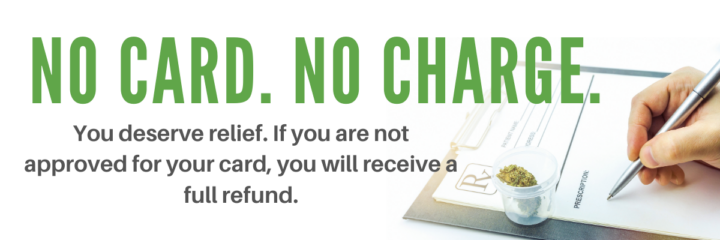
Sources and Additional Reading
- Marijuana: an effective antiepileptic treatment in partial epilepsy? A case report and review of the literature
- Cannabinoids in the Treatment of Epilepsy: Current Status and Future Prospects
- Medical Cannabis for Intractable Epilepsy in Childhood: A Review
- Historical perspective on the medical use of cannabis for epilepsy: Ancient times to the 1980s
- Medical marijuana helps stem 6-year-old’s seizures
- Cannabis and epilepsy: An ancient treatment returns to the fore
- Cannabinoids, hippocampal excitability and efficacy for the treatment of epilepsy
- Pharmacological and Therapeutic Properties of Cannabidiol for Epilepsy
- Chronic administration of cannabidiol to healthy volunteers and epileptic patients
- Potential Clinical Benefits of CBD-Rich Cannabis Extracts Over Purified CBD in Treatment-Resistant Epilepsy: Observational Data Meta-analysis



